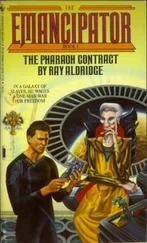‘Soldiers that we trained ourselves, turning what we taught ’em back against us,’ the soldier grumbled.
‘Can’t say as I blame them,’ Jones said. ‘The Egyptian soldiers we massacred back at Tel-el-Kebir when we first arrived in Egypt only wanted freedom from Turkish rule, and we put the survivors in chains and sent them down here to the seventh circle of hell to get slaughtered. Joining with the dervishes isn’t just about saving their own skins; it’s about carrying on their fight against the Ottomans. I’m not saying as we should sympathise with the Mahdi, heaven forefend, sir, but I’ve seen the Ottoman officials on the way down here and the way they lord it over the Egyptians, and I can see their point.’
‘The Ottomans are our allies, Corporal Jones,’ the subaltern said. ‘Watch what you say.’
‘Begging your pardon, sir, I’m only saying what Tommy Atkins thinks, that is when he’s allowed to think, when he’s not digging holes and hauling on ropes and dodging crocodiles.’
‘Well, from what Major Mayne says about the work ahead, we’re going to need a lot more of that. And we can’t have you thinking, Jones.’
‘No, sir. Most definitely not, sir.’
Mayne grinned tiredly. ‘It’s not the Egyptians we have to worry about, it’s the Mahdists. And they don’t yet use firearms as we do in massed volleys, or employ handguns at close quarters.’
‘Colonel Burnaby put them to rights on that score,’ Jones said. ‘He showed them what a pistol in the right hands can do.’
Mayne slumped back, suddenly dead tired. At close quarters, a gun was only as good as the speed with which you could reload the chamber, and he knew that any battle with the dervishes would see these soldiers quickly reduced to bayonets and rifle butts and bare hands. He thought again of Burnaby, a man whose legend was matched by his physical stature and deeds. As a subaltern he had wreaked havoc in the officers’ messes of Aldershot and London, pushing the boundaries of boisterous play and earning the dislike of senior officers who had dogged his career ever since. He was an officer in the Household Cavalry, the Blues, a regiment that had seen no foreign service for decades but afforded its officers five months’ leave a year, and therefore scope for an energetic man with connections to appear on the spot wherever action was hotting up. This Burnaby did with flamboyant regularity, finding himself some tenuous attached position that allowed him to exercise his freewheeling nature while seeking out the thick of the action. After recovering from his wounds at El Teb, he had become one of the hotchpotch of officers attached to the river column, just as Mayne was now; and then he had found himself a position on Lord Wolseley’s staff, edging ever closer to where they all knew the next flashpoint would be, somewhere in the desert on the way to Khartoum. Burnaby had his admirers, Wolseley among them, Queen Victoria another, and he was the darling of the press, the epitome of the military hero in the popular imagination. But above all he was loved by the men. Tommy Atkins expected his officer to lead from the front, and if he did so with the bravura and dash of a Burnaby, he would follow him anywhere.
Burnaby had another role, too, one that had brought him into contact with Mayne on missions known only to a select few in the War Office intelligence department. They had last met in the field four years earlier, during the final months of the Afghan War, in a desolate frontier outpost in Baluchistan. Forays to Khiva in Russian Asia and to the eastern frontier of Asia Minor during the Russo-Turkish war of 1877 had made Burnaby an expert on the Russian military, a specialisation that suddenly had huge cachet as Russia and Britain veered towards a proxy war in Afghanistan. When Mayne questioned him for the intelligence department in Baluchistan, he found him sharp and perceptive, inclined to cut to the point, qualities that were paramount for an intelligence observer in the field.
And Burnaby had been in the Sudan before, using another of his long leaves ten years earlier to report for The Times on Gordon’s first period as governor general in Khartoum. Mayne wished he could quiz him now on Khartoum and his time with Gordon, but in so doing he might be entering dangerous waters, leaving himself open to questions on his own role that even a fellow intelligence officer was to be denied. Mayne only ever worked in isolation, answering to one superior alone in the War Office; he never knew whether there were other operatives who were party to his missions, though he suspected it – those sent to take over if he failed; others perhaps tasked to execute the same directive as his own if his mission were to be compromised, to prevent him revealing the truth of a role that would shock the army and the nation if it were ever to come out.
He ran yet again over his own cover story, thinking of everything he had said and done since he had last taken stock, finding no new chinks in his armour. Corporal Jones had suspected that his missions into the desert might be preparation for something bigger, but he had no reason for thinking that it might be anything more than a deeper penetration of the desert ahead of the camel corps that was now assembling at Korti. Among his fellow officers, Mayne was unremarkable, a thirty-eight-year-old whose name had gone steadily up the gradation list until reaching major earlier that year, with none of the brevet promotions and temporary commands that singled out the rising stars. As a Royal Engineer, he was one of a corps of almost a thousand officers posted around the world who had trained and served together, and who often returned to their headquarters at Chatham for refresher courses and periods of study; as a survey officer specialising in forward reconnaissance, he was known more widely still, among the officers of infantry and cavalry and artillery he had served alongside in the field. The utter secrecy of his role was best served by his familiarity, as a skilled officer with a reputation for toughness and resilience who would go behind enemy lines and return without making a show of it.
His cover extended as far back as the beginning of his military career. As a subaltern in 1870, he had been plucked by Wolseley from the School of Military Engineering to join his expedition to Canada against Louis Riel. Back in Chatham, he had been visited by a Captain Wilson from the War Department, who had heard of his survival skills and his exceptional marksmanship, learnt as a boy from the Mohawks, and recruited him for a top-secret role. By the time he met Burnaby in Baluchistan, he had spent almost three years in Central Asia, living in disguise for long stretches in the mountains of the Hindu Kush while the Afghan War raged below, watching and waiting in case the British were routed as they had been forty years before. He had been with Wolseley for the invasion of Egypt in 1882, and with another river expedition in prospect, it was natural that Wolseley should call on him once more. Wilson was here too, acting as Wolseley’s intelligence chief. If Mayne were to be activated, there would be no word, no secret conference, just a handshake and a small folded code. Wilson’s presence was enough to put him on high alert; he knew that the call he had received to attend Wolseley would decide his role here one way or the other.
He looked at the medal ribbons on the tunic of the soldier nearest to him, among them the Khedive’s Star for the invasion of Egypt in 1882. The Khedive was the Egyptian puppet of the Ottoman Turks, the sultanate in Constantinople that ruled an empire stretching from Cairo and Jerusalem to Damascus and Baghdad. The British were forever tottering towards war with the Ottomans, but for the time being they were allies, for as long as the Ottomans provided a buffer against the Russian threat. When the British had invaded Egypt in 1882, it had been to secure their interests in the Suez Canal, to ensure that their new gateway to India was kept open and free from the venality and financial mismanagement of the Ottoman regime in Cairo. Yet after defeating the dissident Egyptian army at Tel el-Kebir, they had propped up the old regime, reinstating the Khedive and ostensibly handing back the reins of power to the Ottomans; they had even supported the Khedive in his renewed attempts to control the Sudan, an exercise that had begun ten years before when the War Office in London had allowed Colonel Charles Gordon to be appointed governor general in Khartoum, supported by the motley collection of European and American adventurers that Gordon gathered around himself.
Читать дальше












